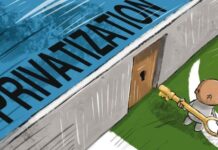
ISLAMABAD: A report submitted by the State Bank of Pakistan (SBP) to the Supreme Court (SC) of Pakistan has revealed Pakistani individual account holders transferred an astounding amount of $15.253 billion in the financial year 2016-17.
The apex court in its order end-March had directed the formation of a twelve-member committee to investigate the process of amassing undeclared overseas assets by Pakistani nationals.
An eight-page written order released by the apex court on Friday regarding a suo motu case concerning the recovery of alleged ill-gotten wealth from overseas accounts revealed an outflow of $15.253 billion in FY17.
The twelve-member investigating committee comprised of Governor SBP, Tariq Bajwa, Chairman FBR Tariq Pasha, Additional Attorney General Mohammad Waqar Rana, Advocate Ikramul Haq, Finance Secretary Arif Ahmed Khan, Shabbar Zaidi, Mehmood Mandiwala, Bashir Ali Muhammad, Nisar Muhammad Khan, Tariq Paracha and senior lawyer Khalid Anwar.
As per the apex court’s written order, the report submitted by SBP disclosed during FY17, an astounding amount of $15.23 billion was transferred overseas by Pakistani nationals via formal banking channels.
The committee observed during FY17, a major amount of transfers were carried out from Pakistan via the illegal Hawala and Hundi mechanisms.
The report stated “Clearly, both types of outflows have a huge impact on the stability of the foreign exchange reserves of the country and adversely affect the exchange rates of the Pakistani Rupee. Also, as a result, the national economy can become vulnerable to pressure due to foreign currency obligations and can suffer undue and disruptive inflation and can drain the exchequer of substantial amounts of tax because of escaped income and wealth.”
Although, the court in its written order stated “We are not an expert in economic, fiscal or financial matters. It was persuaded to initiate these suo motu proceedings for the grave public interest concerns: firstly, regarding the declining foreign exchange reserves of the country, the depreciating exchange rate of the rupee and the corresponding inflationary trend of imported essential commodities; and secondly, by the governmental indifference towards the unhindered outflows of valuable foreign exchange from the economic wealth and resources of the country encouraged by immunities from scrutiny and from taxation granted to foreign currency transfers abroad that were also depriving the exchequer of vital tax revenue.”
The committee in its report to the SC said, “Recommendations have been made by the committee to deal with the said deficiencies in foreign exchange regulation and tax collection. The recommendations note the experience of incentive schemes floated in other jurisdictions to encourage voluntary disclosure of foreign assets. These include schemes initiated in the recent past in Italy, India and Indonesia. It is stated that the Tax Amnesty Scheme, 2016 offered in Indonesia was highly successful and the committee supported its emulation in Pakistan.”






